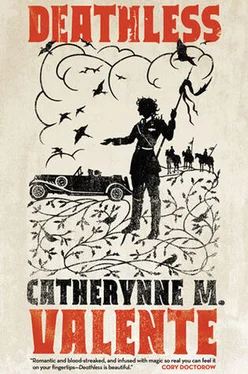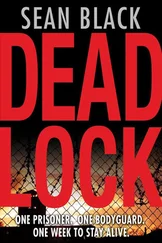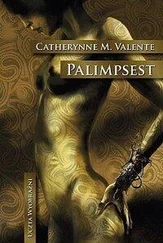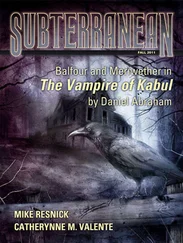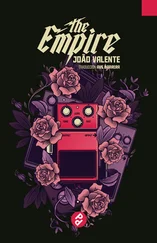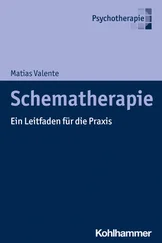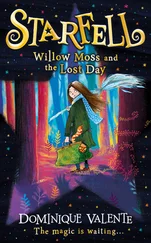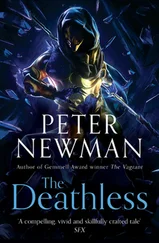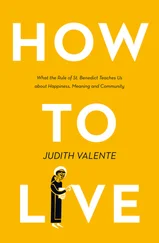The vintovnik brightened and danced a little down the long cobbled road. Zemlehyed grunted and punched the ground with his mossy fist.
“Cronyism!” he spat.
In the deepest, most hidden room of the Chernosvyat, whose ossified cupolas shone here and there with silver bubbles and steel cruciforms, Koschei the Deathless sat on his throne of onyx and bone. His eyes drooped, redly exhausted, from weeping or working or both. Before him, on a great table formed from the pelvic dish of some impossibly huge fish, lay scattered maps and plans and letters, papers and couriers’ boxes, photographs and sketches, books wedged open, upside down, splitting their spines.
Marya Morevna entered, her hunting costume half-open in the heat of the place. The dark walls of the Chernosvyat often seemed to breathe, and their breath came either brutally hot or mercilessly cold. Marya never knew which to expect. Silently, she walked around the long table and let a single golden feather drop. It drifted lazily down to rest on a requisition form. It no longer flamed, but glowed with a soft amber light.
“I would have preferred it living, volchitsa,” said Koschei, without looking up.
Marya shrugged. “It only died just now, as much of exhaustion from the hunt as the bullet.”
Koschei rose from his papers and drew her to him, bending to kiss her collarbone.
“I am proud of you, of course, beloved, baleful. But you must realize that you have only added a firebird to Viy’s cavalry. A black, flameless thing, its bony wings bearing ghost-pilots with their arms full of ordnance.”
Marya Morevna shut her eyes, savoring his lips on her skin as she savored the slab of black bread, buttered and spread with roe, once, long ago.
“It was hiding a clutch of eggs,” she breathed as he gripped her hair and tilted her head to show her throat, pale and bare. “In a short while we shall have enough firebirds to pull a siege tower, and still have one or two left over to light the hearth when we return.” His weight against her chilled and wakened her skin. She smiled against his dark glove. “Besides, it was tradition, once, for a suitor to fetch a firebird’s feather to show their good and marriageable qualities.”
“I know your qualities.”
Marya said nothing. She did not feel an urgency to marry, exactly—nothing like her sisters, who had longed for it like the prize at the end of a long and difficult game. But she did feel that as long as Koschei kissed her and kissed her and did not marry her, she remained a child in Buyan—a cosseted tsarevna, but not a Tsaritsa, not a native. A human toy. She did not care whether he gave her a ring—he had given her dozens, of every dark and glinting gem—but she did not wish to be a princess forever.
Koschei picked up the knife he had been using to open couriers’ seals and looked up at her speculatively. Reaching up, he slowly sliced off the buttons of her hunting dress.
“If you keep cutting at me I shall have no clothes left,” said Marya Morevna. The gems in her hair clattered against one another as he cupped her skull in one large hand. With the other, he cut away the skirt of her dress in a stroke, like peeling the skin off a red, red apple. His hands burned coldly on her. She felt, as she could always feel, the bones of him beneath the skin of his fingers, his hips. Then he hardened, his skin becoming warm and real and full. A skeleton, always, embraced her first, and then remembered to be a man. She understood—had he not told her? To be Deathless is to treat with death in every moment. To stave death is not involuntary, like breathing, but a constant tension, like balancing a glass on the head. And each day the Tsar of Life fought in his own body to keep death down like a chastened dog.
Koschei dug his nails into the small of Marya’s naked back; blood welled in tiny drops. Marya cried out a little, her breath thin and quick, and he lifted his thumb to his lips, suckling at the little smear of her blood. His cheeks, always gaunt, hung with shadows, and he watched her with a starveling’s eyes. But that did not frighten her anymore. Her lover often looked starved, hounded. She could kiss those things from him, and often did, until his face waxed seraphic, soft, smooth—as anyone can do for her mate when the day is long and hard, and solace far off. She thought nothing of it now, of kissing him alive. Everything in this place was livid and lurid and living, and when he loved her and hurt her all at once she lived, too, higher and harder than she had thought she could. Yes, she thought, magic is like that, when it comes . Like the fountains of blood, the houses of skin and hair, Koschei had long since become home. So Marya smiled as he bit her shoulders, feeling infant bruises bloom invisibly under her skin. Tomorrow I shall wear them like medals, she thought as he lifted her up onto the wreckage of field maps and mechanical diagrams.
“Koschei,” she whispered against his neck, where his dark hair curled. “Where do you keep your death?”
Koschei the Deathless lifted the calves of Marya Morevna around his waist and sank into her with the weight of years. He moaned against her breast. It stopped her breath, how like a child the Tsar of Life became when he needed her. The power she had over him, that he gave her. Who is to rule, that is all .
“Tell me,” she whispered. She wanted that, too. She wanted so much these days, everything she touched.
“Hush, you Delilah!” He thrust against her, the bones of his hips stabbing at her soft belly.
“I keep nothing from you. I befriend your friends; I eat as you eat; I teach you the dialectic! If you will not take me to wife, at least take me into confidence.”
Koschei squeezed his eyes shut. He winced with the force of his secret, his climax, his need. As he gripped her tighter and tighter, Marya thought his face grew rounder, younger, as though breathing in her own youth.
“I keep it in a glass chest,” he gasped finally, pushing her roughly back over the stacks of predicted troop movements, his fists caught up in the infinite mass of her hair. “Guarded by four dogs: a wolf like you, a starved racing hound, a haughty lap pup, and a fat sheepdog. All their names begin with the same letter, and only I know the letter.” He shut his eyes against her cheek as she arched toward him like a drawn bow. “And only someone who knows their names can reach the chest where I keep my death.”
Koschei cried out as though he were dying. He leaned against his love, his chest shaking. She held him, like a baby, like her own. And it did not escape her that speaking of his death excited Koschei somewhere deep inside, as if the proximity of it, even the word itself, sizzled electric in his brain.
“Will we win, Koschei?” she whispered. The room went suddenly frigid, frost gathering at the tall windows. “Will we win this war?”
“War is not for winning, Masha,” sighed Koschei, reading the tracks of supply lines, of pincer strategies, over her shoulder. “It is for surviving.”
* * *
Naganya the vintovnik curled against Marya that night in Marya’s own bedchamber, which was curtained in wine red velvets and silks. Living in Marya’s little room was like living inside a heart. She liked it that way, though it gave Madame Lebedeva a headache. And she liked her privacy, to be among her own things. Her enormous bed, its four black pillars disappearing into the ceiling, sank both girls in pillows and down. Naganya, always warm to the touch, sighed in the shadows, and Marya Morevna held her tight so that Nasha would know she wasn’t angry anymore. Had never really been.
“Tomorrow,” Naganya said, “it would be marvelous to go out into the central square and both of us shoot as far as we can, and then go running to see what we have shot! Once I played that game with a boy, and he shot a frog right through the throat. And the strangest, ugliest thing happened. The frog turned into a girl, and she started crying, all covered with mud and naked.” Naganya paused to allow Marya to be impressed. “She wore a green dress when they married, and made wedding bread like nothing you’d believe. The crust was all full of honey and sugar and hard little candied bilberries. She cried when the banns were read, too. The same tears as that day when he shot her. Perhaps she didn’t want to be married to him, but who would not want to be married to an expert marksman? I cannot believe it. She must have cried for some secret amphibian reason. Then her dress caught on fire while they danced, and there was a mess, but that’s neither here nor there.”
Читать дальше
